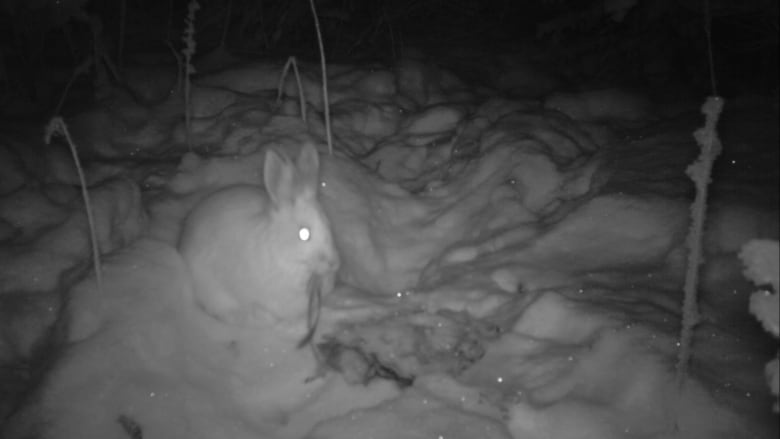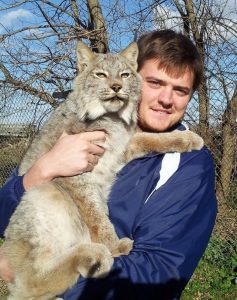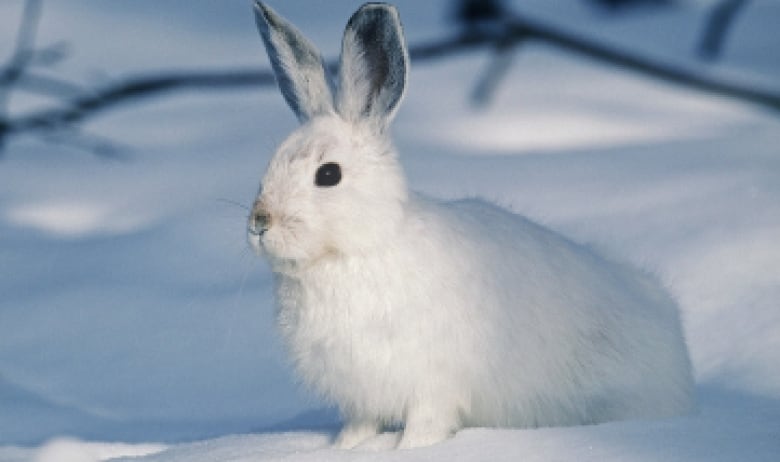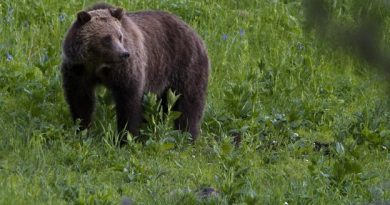Sorry bunny-lovers: snowshoe hares in northwestern Canada eat meat

Snowshoe hares eat meat, and they don’t seem all that picky about what kind of animal it comes from.
A natural history paper published recently in the journal Northwestern Naturalist documents hares in Yukon’s (northwestern Canada) boreal forest scavenging on grouse, loon, other hares and even lynx.

“It’s weird seeing a bunny … just kind of getting its head right into the side carcass of another rabbit and consuming meat,” said Michael Peers, who wrote the paper. “It’s kind of, I guess, not what you’d expect.”
Peers, a PhD candidate at the University of Alberta, is studying how changes in the environment may affect snowshoe hare survival. He discovered the carnivorous hares after setting up wildlife cameras on animal carcasses as a side project to his main research.
While it’s already known in the scientific community that some herbivores occasionally indulge in meat-eating, what surprised Peers was that the hares scavenged “quite frequently and for long periods of time.”
Hares scavenged 20 of the 161 carcasses the researchers deployed for the study and some of the hares appeared to defend carcasses from other hares.
There were two other discoveries that shocked Peers. He captured two different hares eating grouse feathers over a several-day period. He thinks his photos are the first documented occurrence of this behaviour.
Peers said it was also surprising to see hares munching on lynx, their main predator.

He said his findings add to a growing body of evidence that animals aren’t as easily classified as herbivores or carnivores as once thought.
“Animals that we think are herbivores actually consume a little bit more meat than we would have otherwise suspected.”
Squirrels eat lemming brains
Rudy Boonstra, Peers’s co-supervisor, says the discovery is both “remarkable and puzzling” for the photographic evidence he was able to capture of the hare’s diverse appetite.
But the University of Toronto professor, who has been studying snowshoe hare and other mammals in Yukon and the Arctic for more than 30 years, says a lot of herbivores aren’t strictly vegetarian.
Boonstra says he’s seen Arctic ground squirrels go on a “hunt and kill mission” for lemmings and then dining heartily on their brains (he published a paper on this in the Canadian Journal of Zoology in 1990).
“The animals know what they’re doing,” he said, adding that they are most likely supplementing their diet.
Peers found that hares primarily scavenge in the winter. His theory is hares are looking for more protein to add to their seasonal diet of willow and dwarf birch. He suspects the feather-eating also had something to do with protein, but he said it leaves questions about how a hare can digest the feathers.
Spying on the forest
Peers says motion-sensing trail cameras allow researchers to “spy on the forest” in ways previously unheard of.
Researchers in the past would look at animal tracks in the snow around carcasses and take their best guess as to what happened there.
Now, they can get photographic evidence with cameras that detect motion and use infrared technology to take photos at night in pitch black conditions.
Peers’s natural history paper is more observational than scientific, but he hopes it might give other researchers food for thought for future studies.
Related stories from around the North:
Canada: Scientists find hundreds of new toxins in blood of Canadian polar bears, CBC News
Finland: Finland’s endangered Saimaa seal population climbing back, Yle News
Norway: In Arctic Norway, seabirds build nests out of plastic waste, The Independent Barents Observer
Russia: Snow crabs invading Russia’s Arctic nuclear waste dump, The Independent Barents Observer
Sweden: Swedes eating less meat than before, Radio Sweden
United States: Arctic and Antarctic waters breed more new species than tropics: study, CBC News



